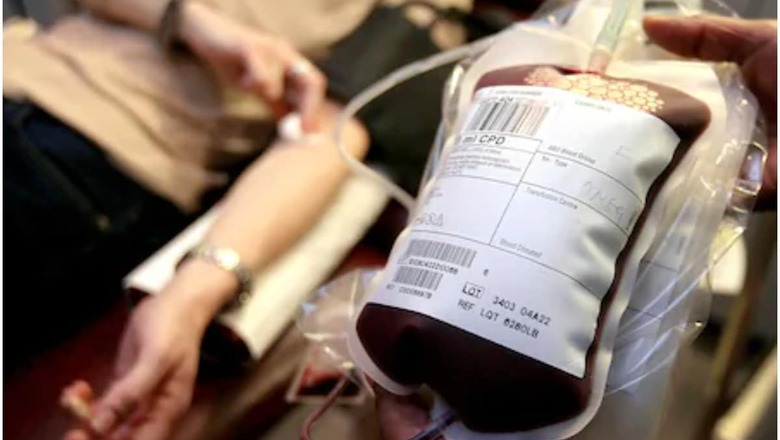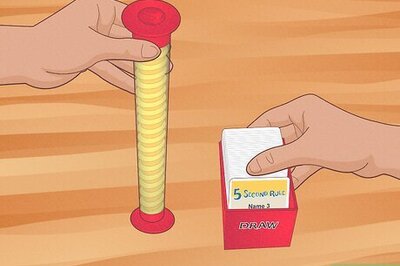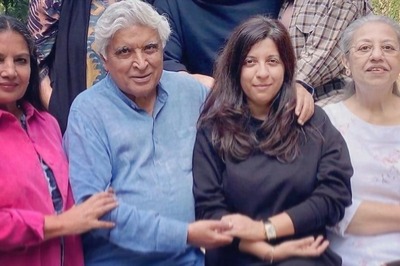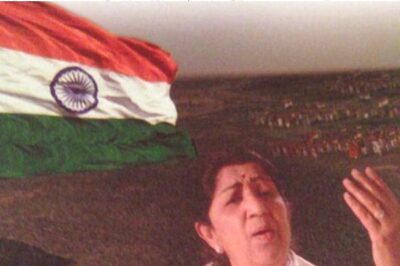
views
Blood banks and hospitals across the country are facing an acute shortage of blood due to the ongoing coronavirus pandemic. In Telangana, the shortage has affected not just patients coming in for surgeries but also those requiring lifelong blood transfusions such as patients living with thalassemia and leukemia.
According to Hyderabad-based Dr Aditi Kishore, founder of Arohi Blood Bank, shortage of blood is a chronic problem in Indian healthcare. Covid-19, had, however, intensified the problem.
“Due to coronavirus, we had to shut down the regular blood donation camps that we hold to raise blood,” Kishore tells News18. She adds that limitations in ground-level activities have negatively impacted public awareness about the issue and also caused an alarming dip in the stock of blood.
Organizations such as Red Cross Blood Bank had warned as early on as March about the eventuality of potential depletion. Since the non-profit’s model of blood collection depended on camps help in IT companies and colleges, the lockdown brought donations to a crashing stop.
To ensure that hospitals and patients in need do not run out of the essential element, Arohi Blood Bank has been using social media to mobilise awareness about voluntary blood donation.
“Since the onset of the pandemic, we realized the importance of employing digital ways to meet our blood requirements,” Kishore says. From March onward, the bank has relied heavily on social media for helping them connect with potential donors and also spread awareness and information about safe voluntary blood donations in times of COVID-19.
“Using social media, we have been able to connect potential donors with patients or hospitals and healthcare centres which were facing a shortage, book appointments and carry out blood donation while maintaining social distancing and other COVID-19. regulations” Kishore says.
Social media giants have also tapped into the need with adequate swiftness.
Facebook’s Blood Donation Tool has been active in helping donors connect with those in need since 2018. Since the lockdown, the platform has tried to made the tool more accessible and available.
“We are constantly working with private and public authorities across the spectrum to create awareness and make the Facebook Blood Donation feature accessible for blood donors in India,” Manish Chopra, Director and Head of Partnerships in Facebook India tells News18.
Telangana, as in the rest of the country, patients requiring regular blood transfusions have been facing the brunt of the coronavirus pandemic. In April, Times of India reported that due to shortage, blood banks were being forced to turn away about 60 percent of patients in Hyderabad. Since then, a large number of voluntary and non-profit organisations have been campaigning for voluntary donations.
According to A Shyam Kumar, Chairman of the non-profit organisation Manam Life Savers, disruption of blood has not only impacted thalassemia and leukemia patients but also those with sickle cell diseases, postpartum hemorrhage, caner patients and those requiring emergency surgeries.
“A decision to donate blood can play an important role in saving someone’s life,” Kumar says. The activist realised the importance of voluntary blood donations when his younger sister needed blood following an appendicitis operation. Since then, Kumar has actively donated blood himself and also founded a charity that promotes donor awareness and voluntary donations.
“I am proud to be a blood donor and through our foundation, we are looking at building awareness and inspiring many others to come forth and donate blood,” Kumar says.
Experts, however, feel that efforts by the civil society may not be enough to fend off the impending blood shortage crisis. Even as the WHO estimates that just one percent of the population donating blood is enough to sustain the blood requirements of the rest of the country, India fell short by 1.9 million units in 2016-17.
“One of the main reasons for donors to not show up for blood donation camps or events at hospitals is the fear of COVID-19. There are rumours that one needs to get a Covis-19 test in order to give blood. These myths need to be busted,” Kumar says, adding that only awareness campaigns and promotions can do the trick.
With the number of blood donors at less than one percent even pre-Covid, it is imperative for the government to take up the matter at both state and central level and formulate sensitization campaigns to educate people about safe blood donation and its importance in the larger well-being of the nation.


















Comments
0 comment